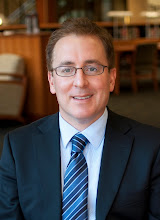Expressive zoning is a phenomenon that affects many forms of public speech across the expressive topography. In an effort to protect certain public places from disorderly displays, and certain audiences from intimidation, fraud, and other harms, laws and regulations often mark off spaces in which expression and assembly are prohibited. "Speech-free zones" have been erected near abortion clinics, government buildings, cemeteries, private residences, and polling places.
As reported here, a federal court has granted a preliminary injunction against the enforcement of a 100-foot buffer zone forbidding exit polling and other "expressive activity" near New Jersey polling places. In Burson v. Freeman (1992), the Supreme Court upheld a Tennessee law that prohibited the solicitation of votes and the display of campaign materials within 100 feet of entrance of any polling place. The Court concluded that Tennessee had compelling interests in preventing voter intimidation and election fraud, and that the 100-foot zone was adequately tailored to address these concerns. But at least ten courts have rejected bans or restrictions on exit polling near polling places. Most have found no evidence of disorderly conduct associated with the practice of sampling and interviewing voters near polling places. Moreover, there are concerns that buffer zones around polling places adversely affect the accuracy of exit polls, as voters are able to exit the area before a proper sample can be taken.
The New Jersey Supreme Court upheld the buffer zone, opining that "the last 100 feet leading to a polling place belong to the voters on Election Day." The spaces in question, typically public sidewalks, streets, adn parking lots, do not "belong to the voters." They are traditional public forums, which ought if anything to "belong to" speakers. In any event, there is no reason voters cannot share the space with pollsters -- and even other speakers, so long as no disruption occurs. Buffer zones at polling places are part of a disturbing trend of protecting audiences from inconvenient public speech and assembly. The courts have been right to reject these spatial controls in the case of exit pollsters, who perform a valuable democratic function.
Subscribe to:
Post Comments (Atom)


No comments:
Post a Comment